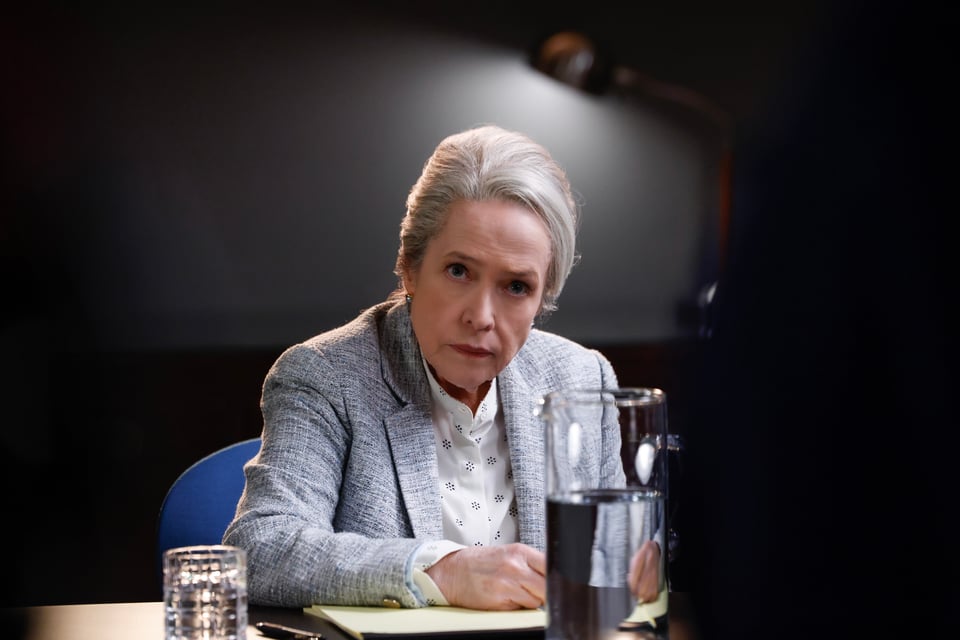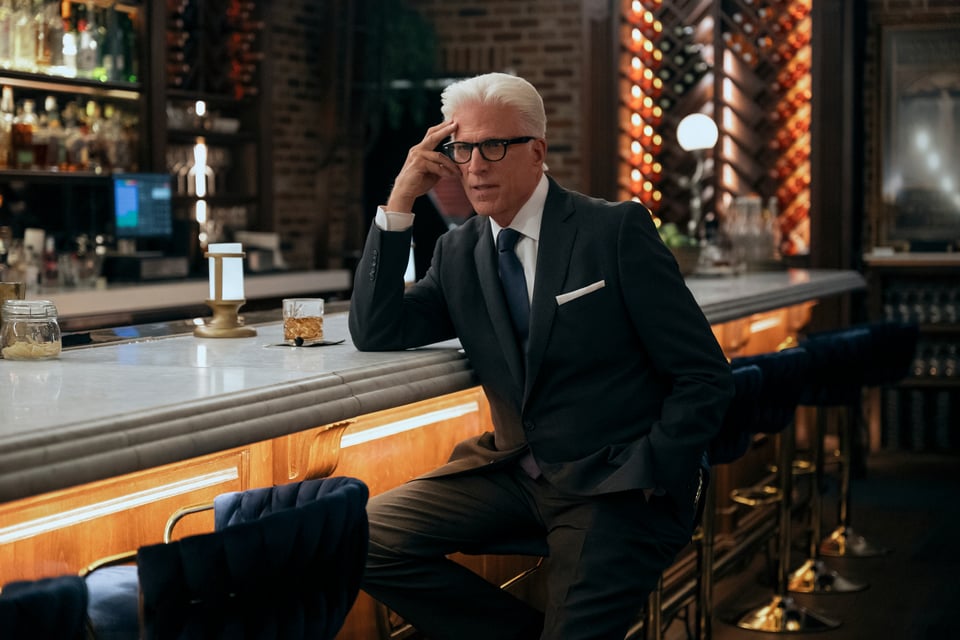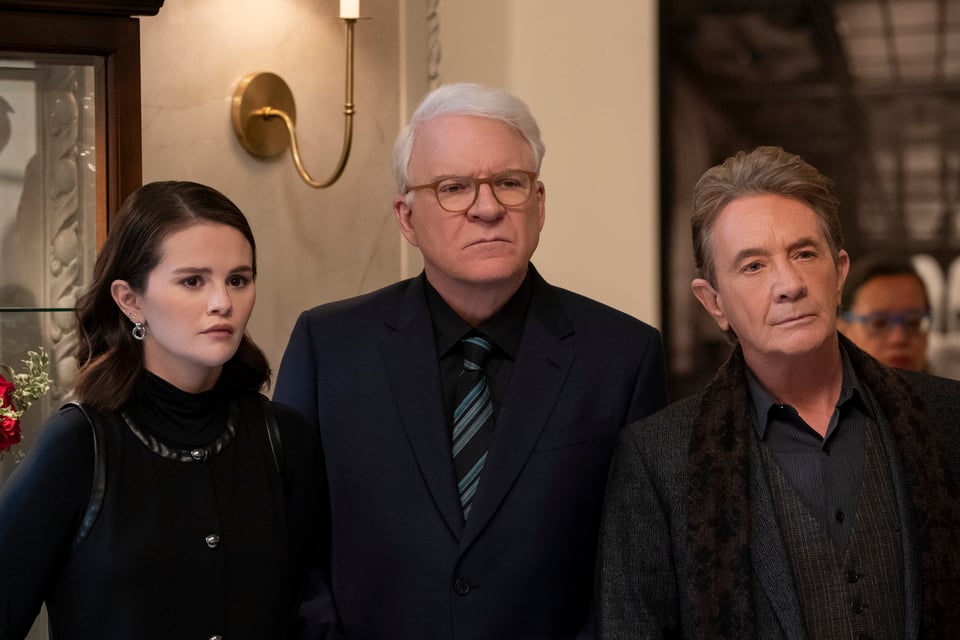Hollywood used to be run by young hotshot power brokers. Not anymore.
The Emmys this year could make history if some of the oldest nominees are winners
On Sunday’s Emmy award broadcast (airing on CBS and streaming on Paramount+ Premium), 77-year-old “Matlock” star Kathy Bates will make history as the oldest performer nominated as a lead actor in a drama.
I’m happy to see a (good!) performance on a network series be nominated. It's been a while since actors on broadcast TV were singled out at the Emmys, but there have been valid reasons for this; the shows and performances haven't warranted it. So a nice break from that pattern.

Additionally, Martin Short, 75, is nominated for Hulu’s “Only Murders in the Building” and Harrison Ford, 83, is nominated for Apple’s “Shrinking.”
Like Bates, if Short prevails he will also make history as the oldest person to win for lead actor in a comedy. The current record-holder is Eugene Levy, who was 73 when he won for “Schitt’s Creek.”
This trivia shouldn’t come as a surprise. Throughout television history, how many people were getting lead roles in their 70s? I’m thinking back to the beloved classics featuring older characters at their center and even those don’t qualify. “The Golden Girls” (the cast was in their 50s and 60s). The original “Matlock” (Andy Griffin was in his 60s). “Murder, She Wrote” (Angela Lansbury was 59 when the series premiered and in her early 70s — younger than Bates is now! — when the show ended).
It hasn’t been unusual to see older actors in supporting roles. Or guest roles. In fact, actors who are 80-plus tend to score Emmys for their guest roles, including Cloris Leachman for “Malcolm in the Middle,” Elaine Stritch for “30 Rock,” Betty White for “Saturday Night Live,” and Dick Van Dyke for (squints) “Days of Our Lives.”
But headlining a show as the star? You just didn’t see it. Until now.
A sampling off the top of my head from the last two years:
Kathy Bates (“Matlock”)
Ted Danson (“A Man on the Inside”)
Martin Short and Steve Martin (“Only Murders in the Building”)
Jean Smart (“Hacks”)
Kevin Kline (“Disclaimer”)
Michael Douglas (“Franklin”)
Christine Baranski (“The Gilded Age”)
Jeff Bridges (“The Old Man”)
Harrison Ford and Helen Mirren (“1923” — in addition to his role on “Shrinking” and her role with fellow 70-something Pierce Brosnan on “MobLand”)
Arnold Schwarzenegger (“FUBAR”)
Sylvester Stallone (“Tulsa King”)
Tim Allen (“Shifting Gears”)*
That’s not even an exhaustive list
*I hate to include Allen because I think he’s odious and not much of a sitcom actor, but his age clearly isn’t an impediment to having an entire TV show built around him.

The quality of these shows varies, but there’s something notable about this happening in an industry where ageism is too often the default, coupled with the absurd fear of “looking” one’s age.
It’s also notable that the actors primarily benefiting from this trend are white and male.
So why is this happening now?
The physical and mental demands of carrying a series are significant. Not everyone can (or wants to) do it at this age. That so many are is unique and I have a theory that may explain why.
Hollywood has a history of young hotshots in their 20s and 30s running the TV and movie business. In 1993, for example, Mike De Luca got the top job at New Line Cinema when he was 27. We can go back even earlier. A hundred years ago, Darryl F. Zanuck was the youngest head of production in Hollywood at 23.
This perception may still persist, but it’s no longer the norm. Right now, most decision-making executives are well past retirement age. The Hollywood Reporter looked at this phenomenon last year. So did The Ankler newsletter, with a post that had the headline: Everyone Who Ran Hollywood Used to be Young. What Happened?:
Hollywood is starting to resemble a gerontocracy, as power continues to consolidate, people no longer talk of wunderkinds but rather years of experience, and succession plans seem uncertain.
For aspiring top dogs, this has closed out opportunities and left them stuck in lower or middle management roles.
On the flip side, there’s now quite obviously an abundance of executives willing to back actors who are their peers, age-wise.

But it’s also probably why we’re seeing so many reboots of the kind of old intellectual property with which most people under 40 have no familiarity. These days, it’s harder than ever to get passive exposure to pop culture that existed before your time.
Not that the current batch of decision-making executives seem to notice.
Also this week …
Speaking of “Only Murders in the Building,” I reviewed Season 5 for the Chicago Tribune. It’s as charming as ever. But the show doesn’t spend time developing the connection between its three main amateur sleuths. Five seasons in, I think that ultimately holds it back.
This time out, the fate of The Arconia — the very building where they reside — may be at stake! Critics weren’t given the final episode, so I don’t know if this means the show’s creators are looking to wrap things up — or not.
The mystery concerns the murder of The Arcadia’s longtime doorman, Lester:
Lester’s untimely death is an opportunity for “Only Murders in the Building” to do what it does best: Pausing for lovely little portraits of New York that may not be essential to the plot, but are some of the most fulfilling storytelling moments on the show. This one is an ode to the profession of doorman itself, which is increasingly becoming a thing of the past. Thirty-two years ago, Lester was a failed actor who took the job as a way to earn a living until he landed his big break. Along the way, his acting dreams fell away and “doorman” became his defining role in life. He was invested in the lives of the residents, some of whom were more appreciative than others, but what are ya gonna do? Such is the fate of a uniformed doorman, who is forever there and yet largely unseen.
You can read my review here.